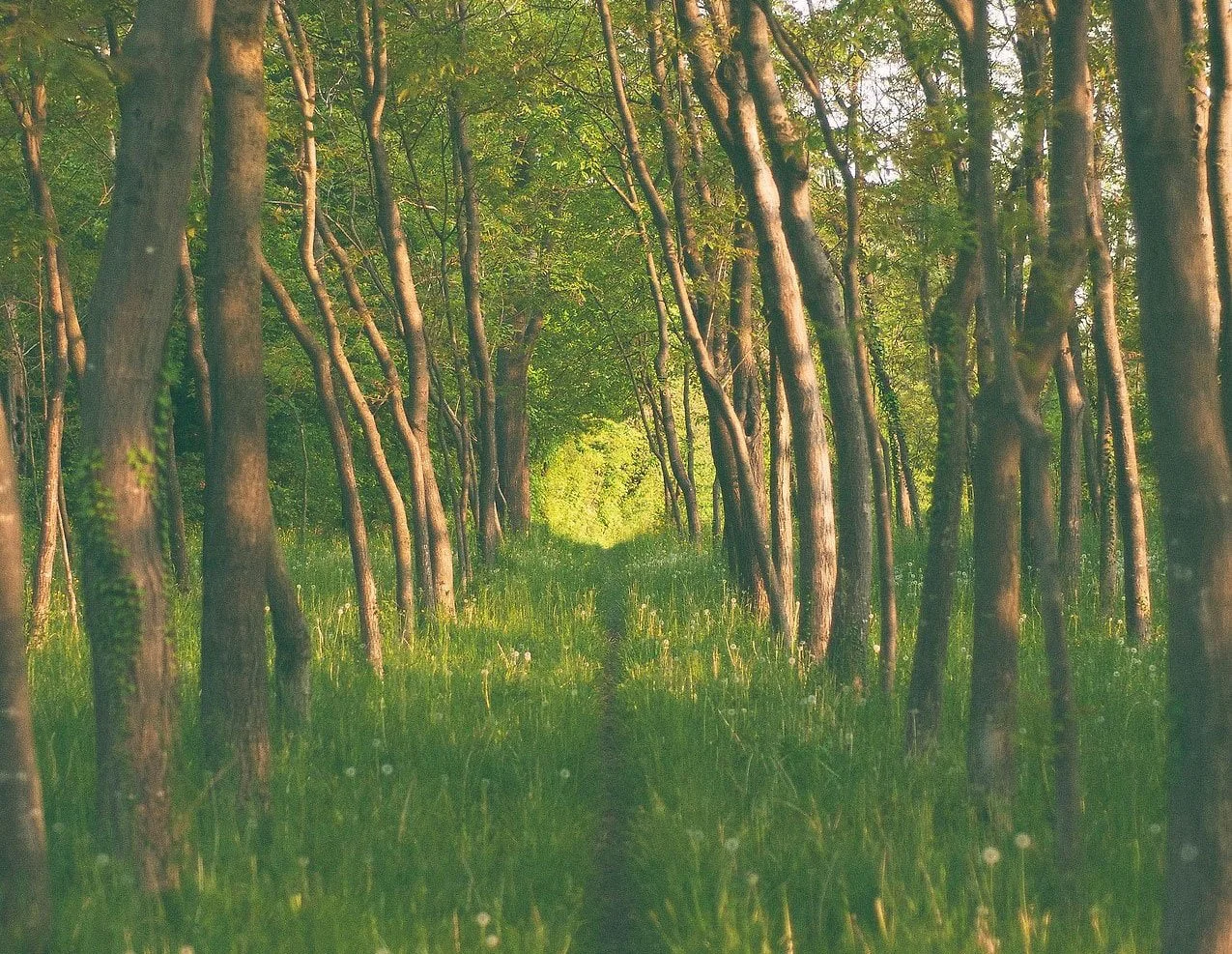Lark shares about the relentless and direct activism Appalachians Against Pipelines has been doing to stop the pipeline, build community resistance, and advocate for the needs of their communities in the face of developers, oil and gas advocates, and a continued disregard for Appalachian voices.
Read MoreYoalli brings us to the Chacahua-Pastoría Lagoons in Oaxaca, Mexico, to investigate deep connections with land, ongoing colonial violence, and the grief that comes alongside loving a place; a heartening conversation about the importance of ecological grief, rage, and sadness.
Read MoreBrett shares how mass-incarceration and climate change are not crises of the individual, but of our culture. The abolitionist imagination may be the key to a collective future– as Brett reminds listeners that one can be both practical and utopian.
Read MoreBayo Akomolafe guides listeners on a journey to lose oneself and leave behind the ties that bind us to world views that do not serve humanity’s wholeness. Bayo challenges us to lean into the “political un-project” that is fugitivity, blurring societally-imposed binaries, in order to better understand the human territory and to make more-than-human sanctuary through post activism.
Read MoreDr. Carroll pushes back against dominant settler histories about Cherokee migrations and relations to homeland and provides insight into what audience members ought to glean from Indigenous philosophies imparting practices of deep reciprocity, responsibility, and relationship to the land and each other.
Read MoreDr. Osorio guides us into a fuller understanding of aloha by returning the commodified phrase to the more extensive understanding of aloha ‘āina, wherein the possibilities for other worlds are not only born but remembered and recalled from the long history of sovereign Hawai’i and traditional Hawaiian teachings and lifeways.
Read MoreCovering the neuroscience of trauma, the habit of racism, and various typologies of systemic trauma, Dr. Ward provides insight into how we might consciously choose to activate our neuroplasticity toward justice rather than collectively rewarding our neuroplasticity for violence and oppression.
Read MoreRichie and Ayana examine how harmful patriarchy is to us all, why we must let go of our limited understanding of crime, the geography of prisons, and meaningful and revolutionary organizing in prisons.
Read MoreALOK shares how challenging the gender binary is not only in service to our collective wellbeing but is a reverential offering in acknowledging our true celestial expansiveness that has been dimmed under binarism, heteronormativity, and colonialism.
Read MoreIn recognition of the tremendous intricacies of our experiences when it comes to our collective histories, forced severances, and the manipulation of trauma in our society, Prentis shares how embodiment is a resource that allows us to connect with the Earth, recognize grief as an entry point, and shape the impossible into possible.
Read MoreIn this powerful conversation with land defender Sii-am Hamilton, we are invited to discuss futuristic ways forward in recognition that Indigenous communities have been practicing creative resistance against colonialism and capitalism for hundreds of years.
Read MoreIn the shift from panic to practice, visionary fiction is vital medicine, and adrienne guides us to stretch our minds to see a future beyond what the confines of white supremacy, colonialism, heteropatriarchy, and capitalism tell us is possible.
Read Morebrontë and Ayana explore topics including appropriating propaganda and memetics, reorienting ourselves away from the spectacle of terror, tending to erotic energy and sensual spaces, and the nuances around beauty and aesthetics in dominant culture.
Read MoreAyana and brontë delve into topics surrounding authentic expression, the distortion of feminine and masculine powers, beauty and aesthetics, queerness, dominatrix energy, and power as agency.
Read MoreVijay shares how our morality has eroded under the weight of capitalism and why the disappearance of dignified discourse is connected to calculated divestments from our social and state institutions. This moving episode pushes us to think about how we can organize movements that will truly address quality of life.
Read MoreWith a historical analysis of slavery and plantation labor, Tricia Hersey of Nap Ministry prompts us, at this critical time, to consider what is stolen from those among us who cannot rest under white supremacy and capitalism.
Read MoreSha’Mira shares that the fashion industrial complex cannot simply be discussed in terms of environmental impact alone, it must be acknowledged as a loud echo of colonial conquest; not just in terms of extraction of labor and resources, or the outsourcing of pollutants and illness, but also in terms of culture and appropriation.
Niria Alicia guides us to think about ancestral instruction, precious purpose, rituals for liberation, and what it means to be human in this time. This warm and rich conversation looks at spiritual crisis in tandem with climate crisis, the allure of self-sabotage, and the problem with the many “solutions” we are offered …
Read MoreDr. Rupa Marya and Raj Patel discuss the biological impacts of oppressive social structures. We are left with the resounding reminder that inflammation is an indicator that we must change our collective ways in order to heal …
Read MoreLil Milagro highlights the absurdity that dominant education is not meant to equip young people with the kind of basic skills that would allow them to feel empowered about the future we are all aging into and discuss the importance of science, technology, engineering, arts, and mathematics rooted in ancestral knowledge.
Read More







![RICHIE RESEDA on Dismantling Patriarchy [ENCORE] /292](https://images.squarespace-cdn.com/content/v1/5403e5dbe4b04db10d1d362b/1566236374984-HQZYYRFK2VASBC6UROFV/134_Richie-Reseda_For-The-Wild-EpisodeImage_1x1-2.png)
![ALOK on Unruly Beauty [ENCORE] /286](https://images.squarespace-cdn.com/content/v1/5403e5dbe4b04db10d1d362b/1628026864236-HIRDTGMH0WCPPV7JM2H1/ALOK_For-The-Wild_Episode3b.jpg)
![PRENTIS HEMPHILL on Choosing Belonging [ENCORE] /281](https://images.squarespace-cdn.com/content/v1/5403e5dbe4b04db10d1d362b/1627329109275-FVIGDLPJ4YMQ79USYWJJ/PrentisHemphill_For-The-Wild_Episode2.jpg)
![SII-AM HAMILTON on Respect-Based Futures [ENCORE] /279](https://images.squarespace-cdn.com/content/v1/5403e5dbe4b04db10d1d362b/1647971243232-C9IP192OJO9ZDFP859K0/Sii-Am_Hamilton_For-The-Wild-Podcast_Episode3.jpg)

![BRONTË VELEZ on the Necessity of Beauty, Part 2 [ENCORE] /274](https://images.squarespace-cdn.com/content/v1/5403e5dbe4b04db10d1d362b/1645461327684-LRNQ9HKU4YQCN33TEQEV/bronte-velez_For-The-Wild_Episode2.jpg)
![BRONTË VELEZ on the Pleasurable Surrender of White Supremacy, Part 1 [ENCORE]/273](https://images.squarespace-cdn.com/content/v1/5403e5dbe4b04db10d1d362b/1643301487932-08R50XB0L5O043EME4AK/bronte-velez_For-The-Wild_Episode.jpg)
![VIJAY PRASHAD on Capitalism’s Erosion of Morality [ENCORE] /268](https://images.squarespace-cdn.com/content/v1/5403e5dbe4b04db10d1d362b/1611945238994-4N9YTRHYQ1KFWRTPO6L9/Vijay-Prashad_For-The-Wild-Podcast_Episode.jpg)
![TRICIA HERSEY on Rest as Resistance [ENCORE] /267](https://images.squarespace-cdn.com/content/v1/5403e5dbe4b04db10d1d362b/1641228829340-2ZTN7IVCRZLD3CAZY1FZ/Tricia-Hersey_For-The-Wild_Episode.jpg)



